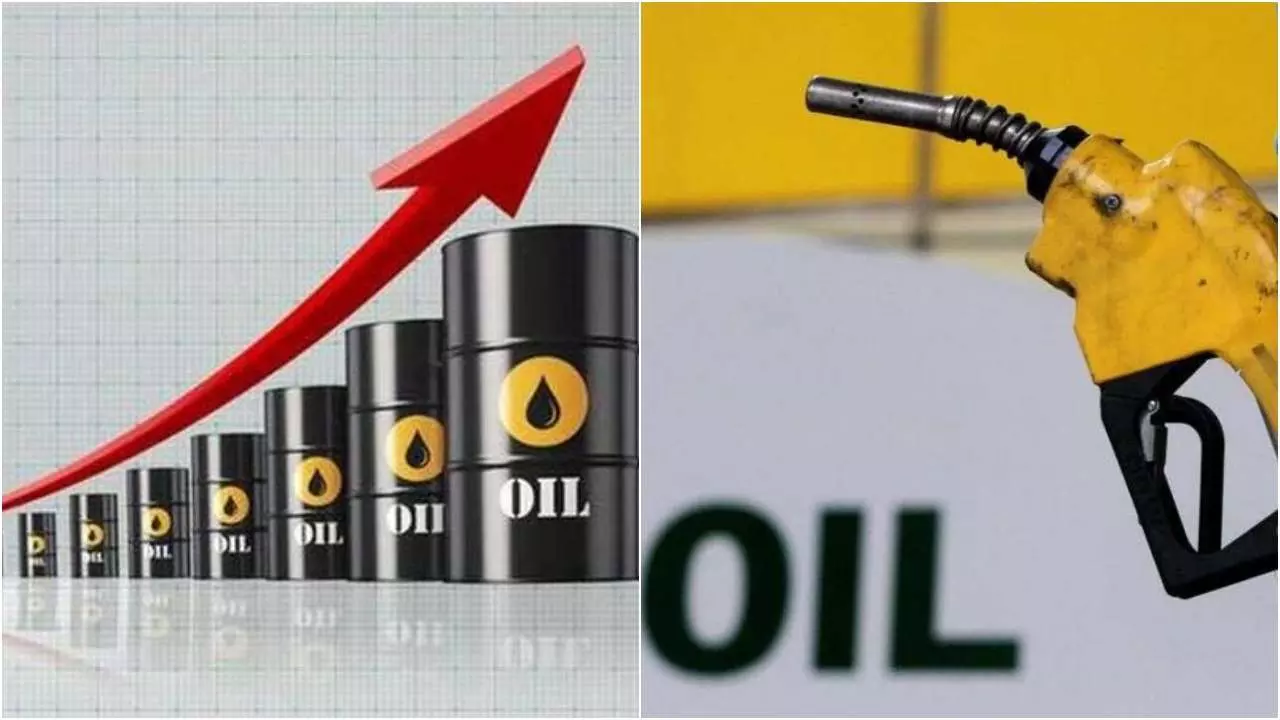
The fuel price test - government should not exacerbate people's suffering
text_fieldsWhen elections were over for the five state assemblies, the sensation of citizens was not the curiosity about the results, but fear about the prospect of a sudden skyrocketing of fuel prices which have been withheld under government control. Ever since the authority to determine fuel prices was transferred to oil marketing companies (OMCs) including private entities, the government does not wield any strong tool to rein in prices. In addition, the present government's policy itself is in favour of giving a free hand to OMCs. The only occasion that the government uses any check on the prices is in the run-up to elections, with a view to preventing possible popular anger leading to loss of votes. To that end, the government reaches an understanding with the OMC's. Conversely, companies fall in line to move forward without any skirmish with the government. It is such a govt-corporate mutual help-based nexus that has been ruling fuel price determination for the last several years. Therefore, the OMCs have been impatiently waiting for the elections to be over, so that they could raise petrol and diesel prices. Oil companies are in a rush to make up for the loss that accrued over the last four months by squeezing the people. They demand a price rise of Rs 15 per liter for petrol and diesel. But they are reported to be mulling not raising it in one go, but instead by fifty praise every day, as if to strangulate people not in one squeeze but in phases.
The Ukraine occupation by Russia created a frying-pan-to-fire situation for OMCs. Following the Russian attack, international oil prices have touched USD 140 per barrel, the highest recorded in the last 13 years. On March 1, the price hit USD 111 per barrel, as against USD 81.5 per barrel at the time fuel prices in India were frozen. The embargo on Russia imposed by the US and European nations aggravated the price rise. The Russian share of global oil production is about ten per cent. But, India buys only a fractional portion of its oil and gas requirement from Russia. Therefore, the price rise in oil imports from Russia will not have much impact. But, the international oil price rise will definitely create a crisis for India which buys 85 per cent of its crude oil requirement. Thus, any turbulence in global oil markets will destabilise the Indian market. As per figures from the Petroleum Planning and Analysis Cell (PPAC) under the Central Ministry of Petroleum & Natural Gas, the price at which India bought crude oil touched USD 111 per barrel on 1 March. When this is put in perspective, the current price level gives ample cause for concern. Another worrying factor regarding the country's economic situation is the steady depreciation of the Rupee. On Monday, the value of INR against the dollar sank to a worrying 76.9812 per dollar. The rise in fuel price will result in increased inflation and a further depreciation of the Rupee. All goods and services that get hit in the snowballing effect of fuel prices will naturally face a consequent rise too. The retail inflation rate of India has hit its highest in the last seven months, and well above the red line drawn by the Reserve Bank. What steps the Central government will take to arrest the free fall is nobody's guess as things stand now.
As a rule, people are made to bear the brunt of the burden during such phenomena. The shock of fuel price rise is going to hit the already broken back of a population who have been suffering the Covid-created crisis including unemployment, uncertainty and lack of security even in the jobs available, prices shooting up every day and the fall in agricultural production and marketing hurdles. Only an earnest and dedicated effort by government can offer any succour and avert a disaster. The government that implemented a price moratorium on fuel price for four months under a political compulsion, should be prepared to think of offering relief with people's welfare in mind. Central and state governments have occasionally in the past exercised means at its disposal for holding fuel prices in check through mechanisms of tax reliefs. If political and government leadership can show the same enthusiasm as displayed to avoid electoral defeat, in order not to fail the people and not to make them the victims of a test, that could offer immense relief to the people.























